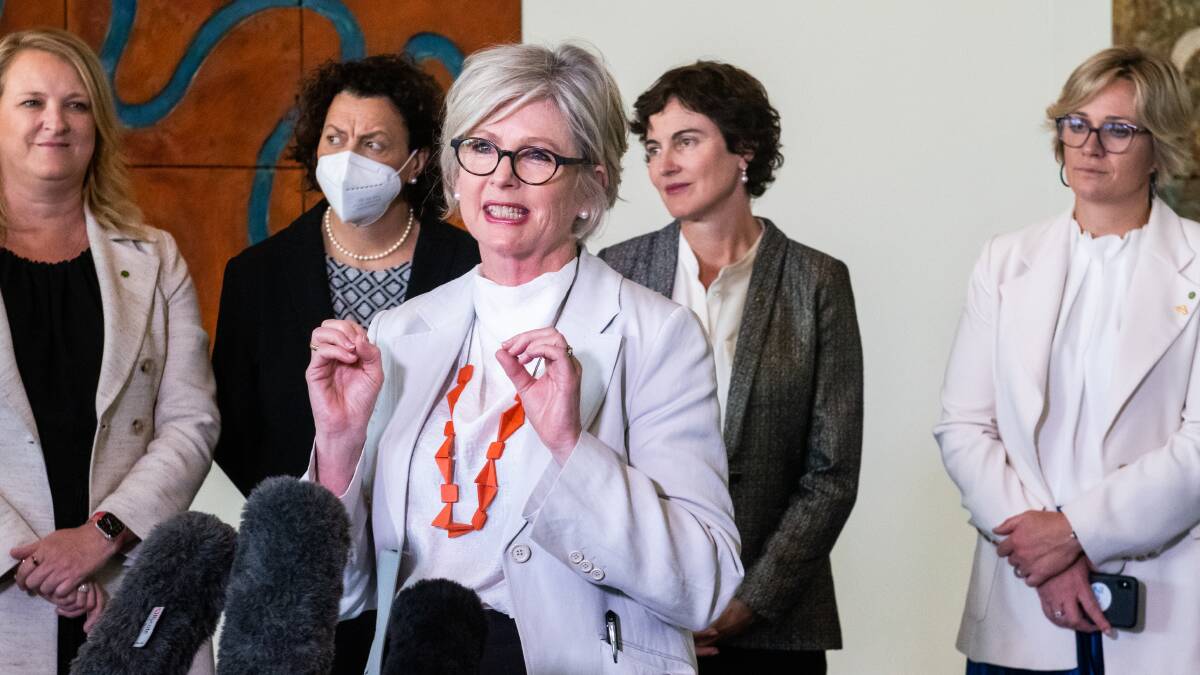
Whistleblower advocates have welcomed the federal government's "first steps" to fixing patchwork laws that protect those who come forward but are eager to see more done in the coming months.
Subscribe now for unlimited access.
$0/
(min cost $0)
or signup to continue reading
It comes as Labor has made good on its promise to legislate a federal ICAC before Christmas with the bill passing both houses this week.
The Albanese government introduced tweaks to the public interest disclosure scheme on Wednesday, which it expects will be passed and in effect by the time its federal watchdog is operational in mid-2023.
The laws have been heavily criticised for being overly complex, containing loopholes, and being limited in offering support to those coming forward.
Attorney-General Mark Dreyfus, who first introduced the scheme a decade ago before being relegated to opposition, said the first tranche of tweaks were "long overdue" but would provide immediate improvements.
The amendments include adding a positive duty to protect whistleblowers on principal officers along with additional training, expanding the definition of detriment to whistleblowers, and improving the process of allocating investigators following disclosures.
The next major step - a more extensive look at redrafting the laws - will occur next year to address the scheme's "underlying complexity".
Consultations will also begin to determine whether there is a need to establish a whistleblower protection authority or commissioner.
But legal and integrity experts say there is still a long way to go before the laws properly protect those shedding light on wrongdoing.
Human Rights Law Centre senior lawyer Kieran Pender and integrity expert Professor A J Brown said the changes needed to address the scheme's core issues, as outlined in a report they released last week.
Those areas, which it delivered in a 21-point checklist for both the public and private sector, include clarifying immunities from prosecution, making it easier to access remedies, and enforcing a positive duty on employers to support and protect whistleblowers.
Establishing an oversight body protecting whistleblowers also formed a crucial step, the report outlined.
"The amendments to reform the PID Act are an important first step to better protect and empower Australian whistleblowers," Mr Pender said.
"But they are just that - a first step. These technical changes make administrative improvements but do not deal with fundamental issues."
Mr Dreyfus' proposed amendments would only tick a few of the report's checklist, the authors said.
READ MORE:
Indi MP Helen Haines said she would continue to push the government to establish a whistleblower protection body to be up and running by the time its integrity body opens its doors.
"It's clear in Australia that whistleblowers have had a raw deal," Dr Haines said.
"We need to have a safe house for whistleblowers. We need to have better information and education and we need to have the strongest possible protection for whistleblowers.
"Without that, this National Anti-Corruption Commission surely will not be able to do the work we're charging it to do."

Last week, one of the world's leading whistleblower experts described Australia's laws as a "global embarrassment" but added they could be modernised with a few changes.
Tom Devine told The Canberra Times the "devilish details" of the legislation stopped the "outstanding vision" of protecting whistleblowers from becoming a reality.
Military whistleblower David McBride last month also slammed the protections as "useless" after his attempts to use reprisal protections to defend himself against five charges were nullified by a last-minute public interest immunity claim by the Defence Department.
Mr McBride is facing jail time after he leaked classified documents about alleged war crimes committed by Australian defence personnel.


